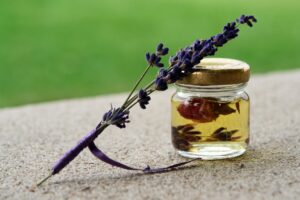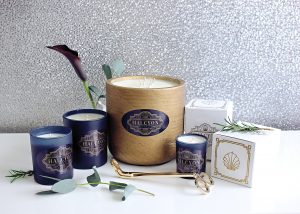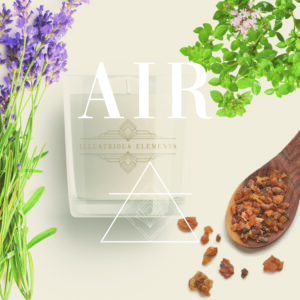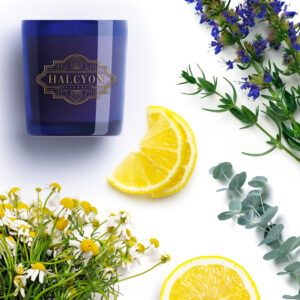Can essential oils help with asthma? We’ve got the scoop
How many breaths have you taken so far today? It’s an impossible question, really. Who can be sure?
We breathe automatically, without a second thought to its complexity and necessity. It’s a vital part of our existence and yet, many of us take it for granted.
Until it becomes difficult.
 World Asthma Day (May 3rd) has got us thinking about this natural habit that we do day in, day out. If you’ve ever experienced difficulty breathing, you’ll know how frightening it can be, but aromachology and essential oils can have a positive effect when used correctly.
World Asthma Day (May 3rd) has got us thinking about this natural habit that we do day in, day out. If you’ve ever experienced difficulty breathing, you’ll know how frightening it can be, but aromachology and essential oils can have a positive effect when used correctly.
And although essential oils are not, in any way, a treatment or cure for asthma or breathing problems, they can act as an aid to calm the body and mind, which in turn can reduce attacks or difficulty inhaling and exhaling.
Essential oils should never replace asthma treatments or medication. It’s important to assess what works for you, as some essential oils can trigger asthma attacks or unwanted reactions. Check with your doctor before trying any new essential oils, and never use them during an asthma attack.
Ready to breathe with ease?
What are essential oils?
 Before we dive into the benefits essential oils can have for clearer breathing, let’s recap on what they are.
Before we dive into the benefits essential oils can have for clearer breathing, let’s recap on what they are.
Essential oils are oils that have been extracted from plants, mostly by steaming or pressing them to release their essence. They are known as ‘pure’ essential oils when the methods to extract the oils are natural, e.g. non-chemical. (The only kind we use.)
They’re aroma-filled powerhouses that have been used for centuries in alternative medicine, helping to soothe ailments and other daily irks by uplifting our mood and emotional centre.
The dos and don’ts of essential oils
 Before you run off to stock your bathroom cabinet with a myriad of new oils, it’s important to understand how to best use them (and not use them).
Before you run off to stock your bathroom cabinet with a myriad of new oils, it’s important to understand how to best use them (and not use them).
Essential oils in their pure form are too strong to be used on their own but when diluted, can be used in a variety of ways, from steam baths to ointments to room scents.
Do: Dilute 2-3 drops of pure essential oil with a neutral carrier oil (like coconut or olive), or look for essential oils already diluted within products.
Don’t: Apply pure, undiluted oil directly to the skin. Even with pre-diluted products, always do a patch test first.
Do: Research the health benefits of the specific oil you want to use.
Don’t: Swallow or ingest essential oils.
Do: Try out different ways to incorporate oils in small doses, such as through candle scents, aromatherapy massage or diffusers.
Don’t: Use oils that you’re not familiar with without first checking with your GP.
How essential oils help you breathe better
As noted by Healthline, some essential oils are anti-inflammatory. This means they can relax the muscles and (you guessed it) reduce inflammation, helping you to unwind and in turn, breathe better.
To get the most out of your essential oils, experiment with different ways to scent your space to find what works for you.
 Facial steam
Facial steam
For quick one-off relief, try a facial steam packed with airway-opening, mind-soothing essential oils.
We love this recipe by Breathe Better Air. It works by helping your body naturally dislodge mucus from your sinuses to open up your airways, and by forcing you to take some time out to sit quietly and regulate your breaths.
To make it, stir 2 drops of tea tree oil with 2 drops of eucalyptus oil in a bowl of hot water and lean your face (carefully!) over the steam, covering your head with a towel. Sit for 5-15 minutes and breathe gently for soothing relief.
Epsom salt bath
When you want to elevate your tub time and ease breathing trouble, add a few drops of diluted essential oils (like those listed below) into a large bath, along with Epsom salts.
Breathe deeply, and relax.
 Home fragrance
Home fragrance
For day to day, we love to incorporate essential oils into home fragrance, through candles, room mists and diffusers.
You’ll find many breath-aiding essential oils in our blends…
3 essential oil scents to cleanse the air and help you breathe
Lavender
 Lavender, one of the most commonly used (and widely grown) essential oils, may help reduce inflammation caused by asthma and allergies.
Lavender, one of the most commonly used (and widely grown) essential oils, may help reduce inflammation caused by asthma and allergies.
Its calming, relaxing scent is floral on the nose and, thanks to its common use in aromatherapy, can instantly connect you to feelings of relaxation.
Diffuse it with: Illustrious Elements Air Element Scent
Spritz it with: Relax Signature Room Mist
Light it with: Healing Candle
Rosemary
 Again famed for its anti-inflammatory goodness, rosemary is a delicious scent to fill your home with. It relaxes the muscles in the trachea, helping to ease coughing and wheezing.
Again famed for its anti-inflammatory goodness, rosemary is a delicious scent to fill your home with. It relaxes the muscles in the trachea, helping to ease coughing and wheezing.
Plus, it smells like Sunday dinner and gives your immunity a boost, too. Who doesn’t love that?
Diffuse it with: Renew Signature Diffuser
Spritz it with: Cleanse Room Mist
Light it with: Illustrious Elements Water Candle
Eucalyptus
 Eucalyptus is antimicrobial, helping to combat bacteria and viruses in the air. It helps improve the airflow through your nose by stimulating cold receptors, making it great if you’ve come down with a cold.
Eucalyptus is antimicrobial, helping to combat bacteria and viruses in the air. It helps improve the airflow through your nose by stimulating cold receptors, making it great if you’ve come down with a cold.
A word of warning here though, eucalyptus oil isn’t safe for children, so as before, always do your research before using any new essential oils.
Diffuse it with: Relax Signature Diffuser
Spritz it with: Breathe Room Mist
Light it with: Breathe Candle
Breathe in, breathe out
 Will you give any of these essential oils a try?
Will you give any of these essential oils a try?
Make sure to check with your GP before using any new essential oils to combat breathing difficulties (or for any use), as people react differently to each of them.
Breathing difficulties can feel debilitating, but taking some time in your day to use essential oils in a way that suits you, can be a small way to keep on top of your symptoms and bring some ease and relaxation to your day.
Looking for a home fragrance to get started with? You can use the handy search bar on our shop website to search for a specific essential oil, and we’ll filter all of our products for you!
Sources:

